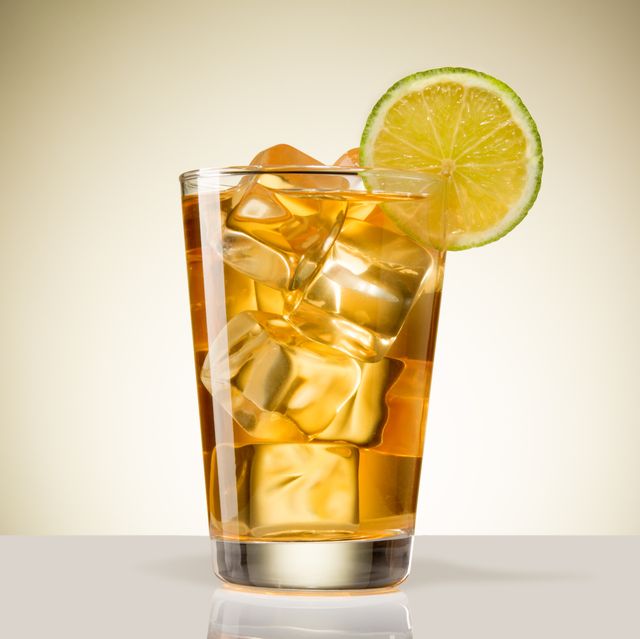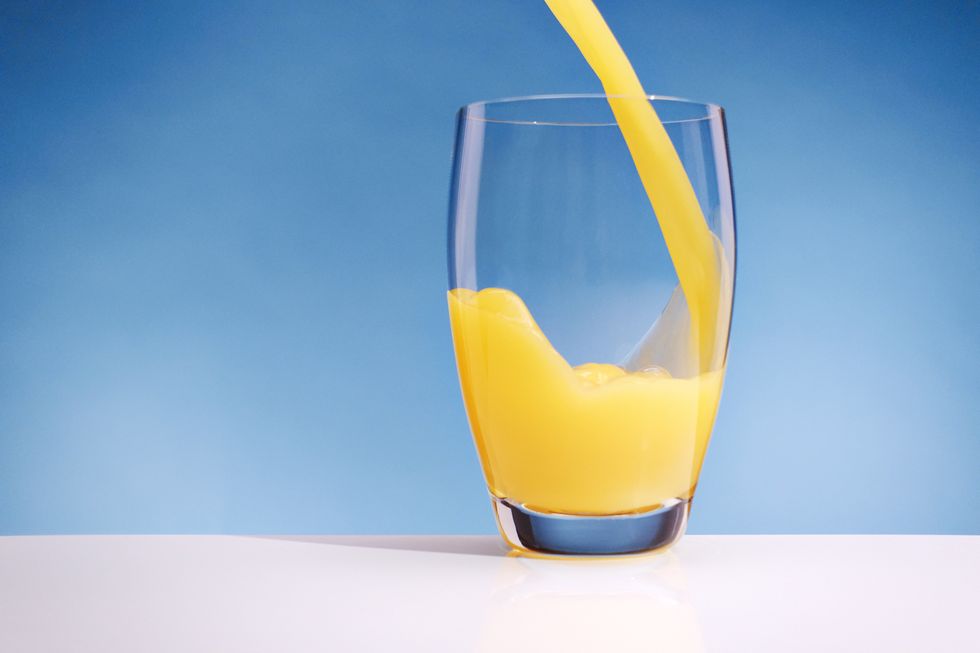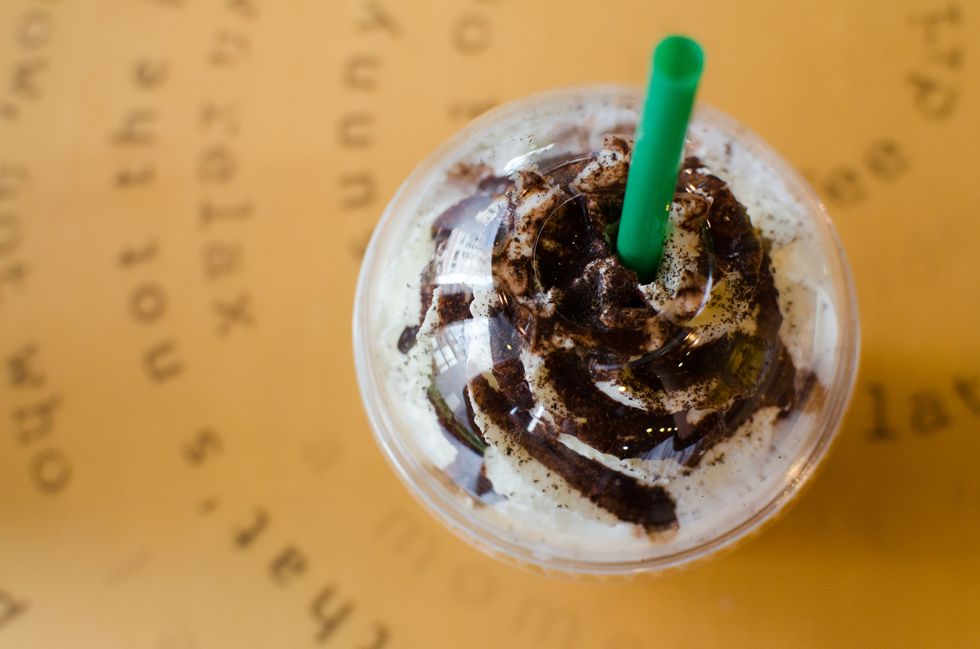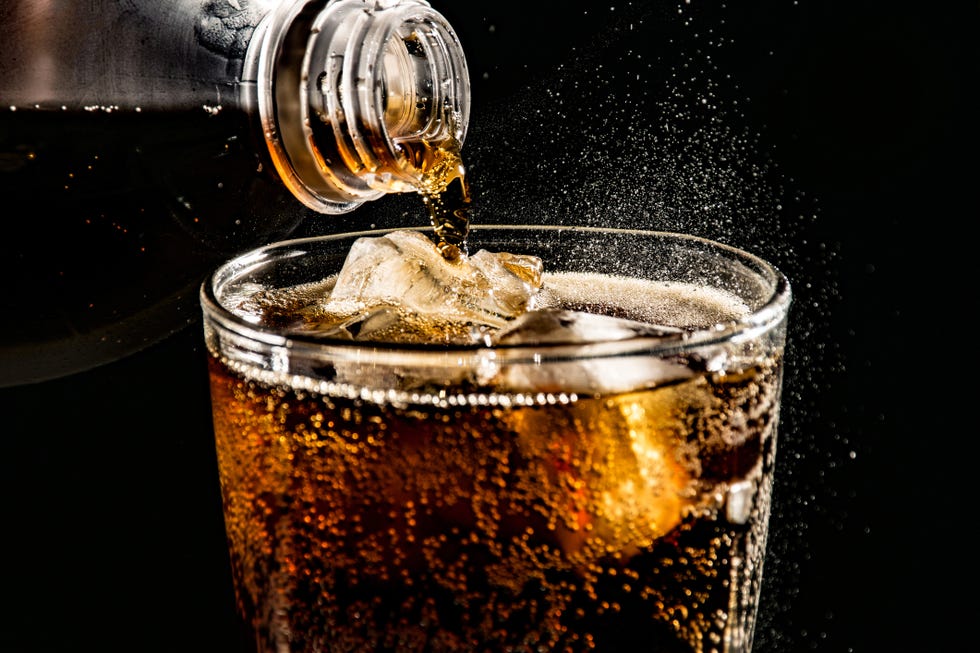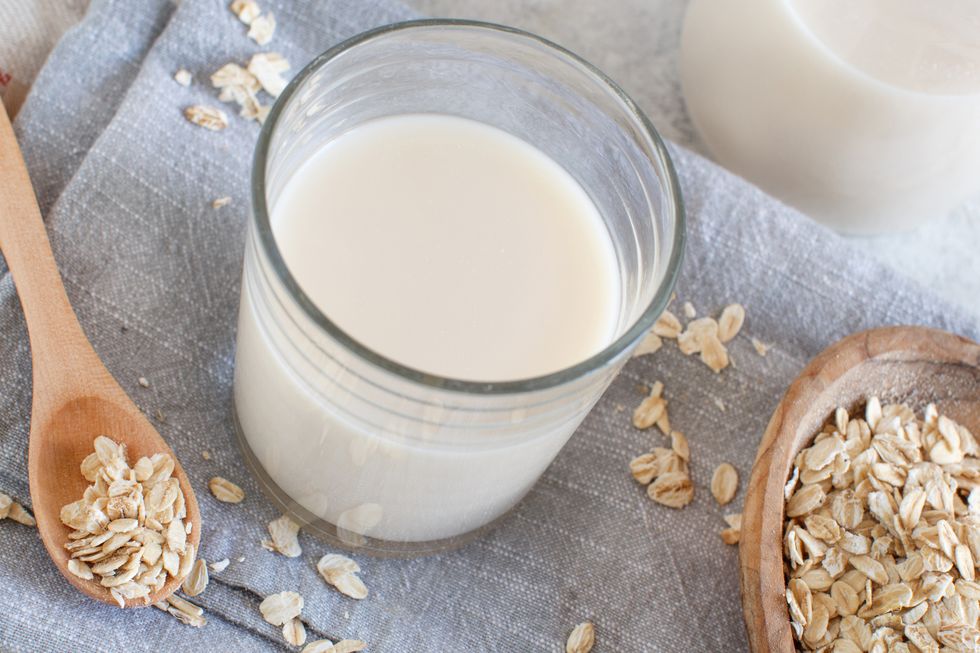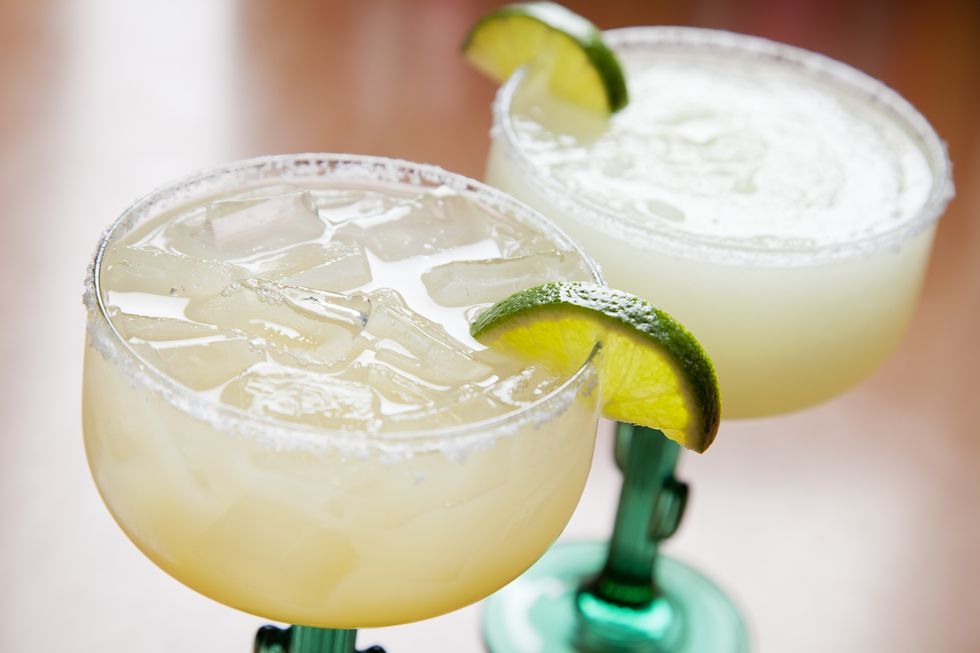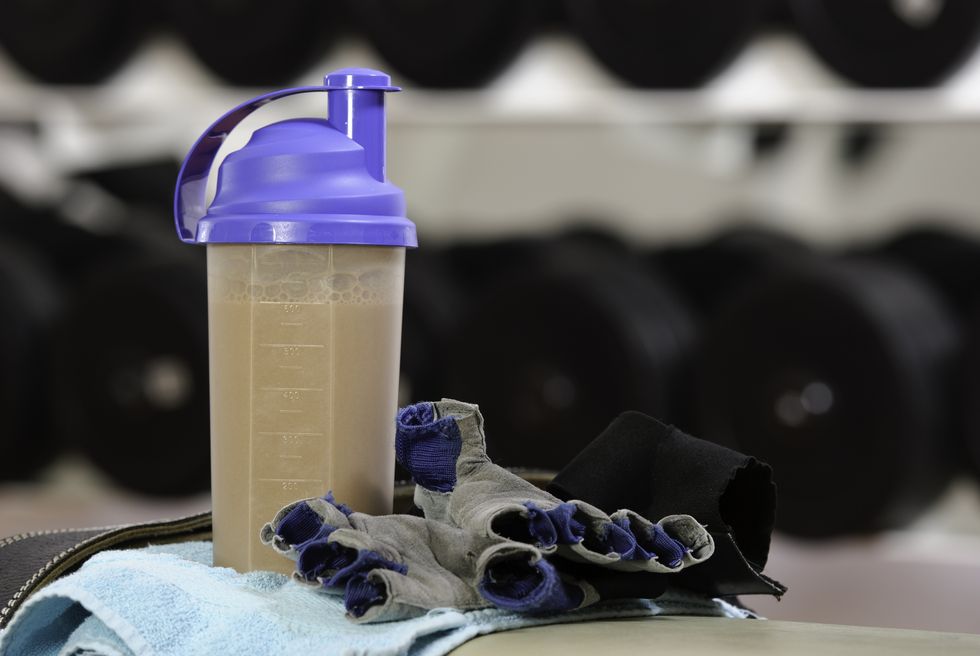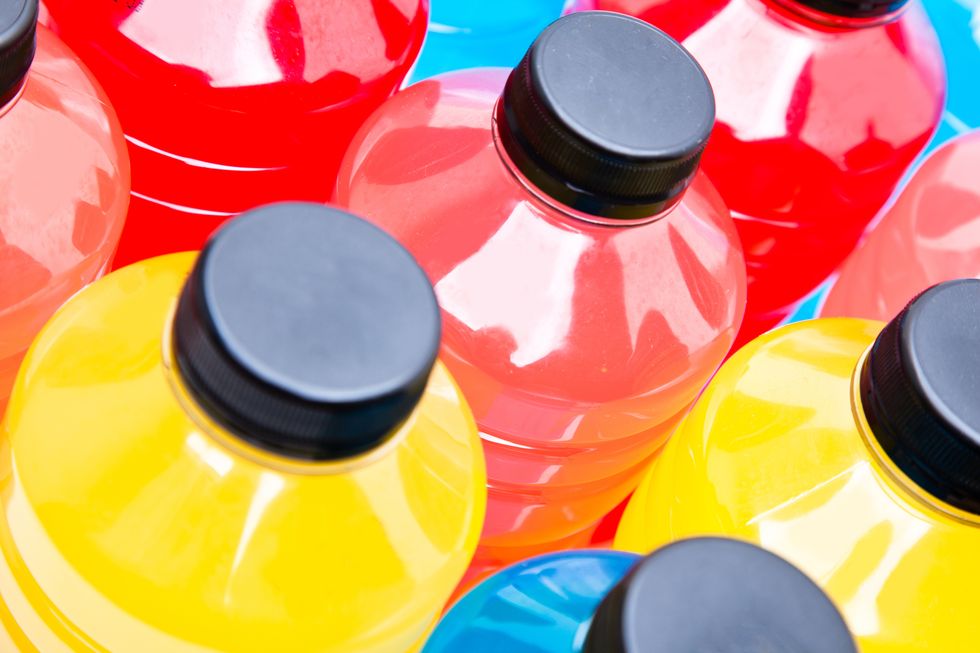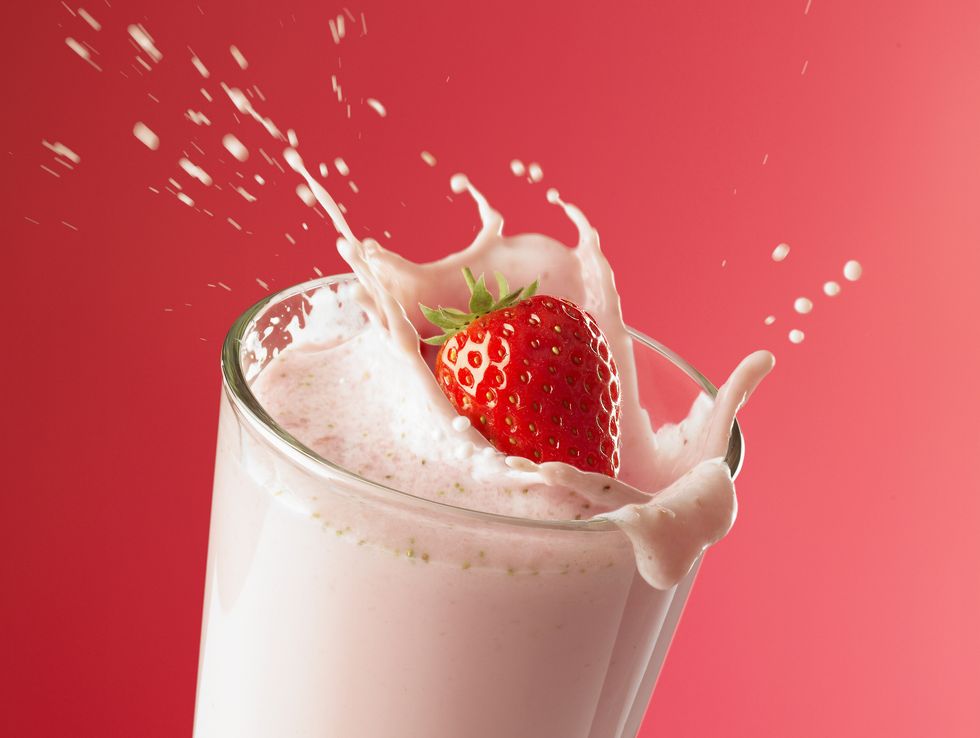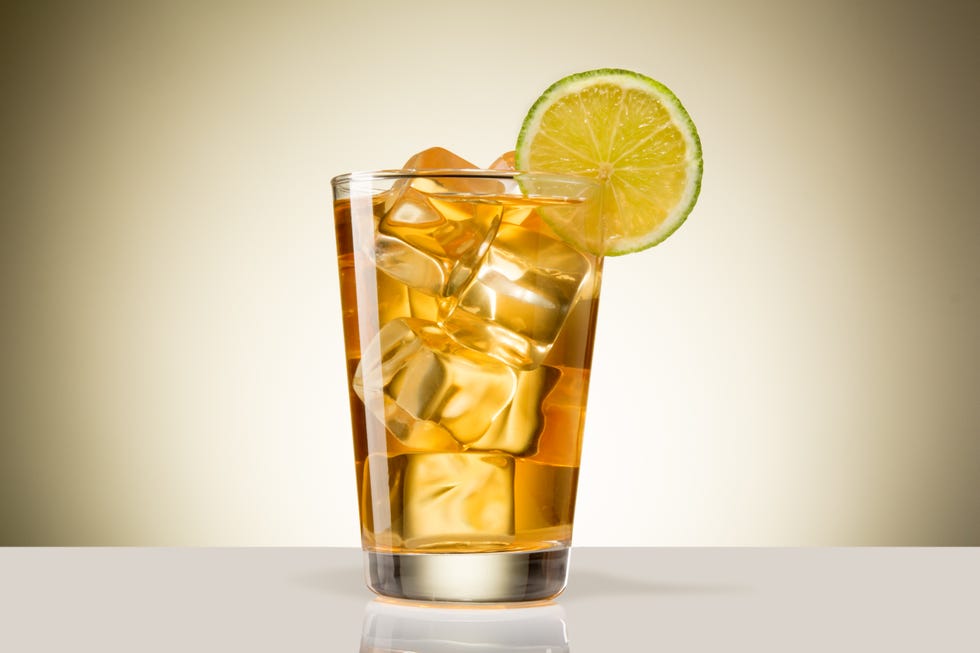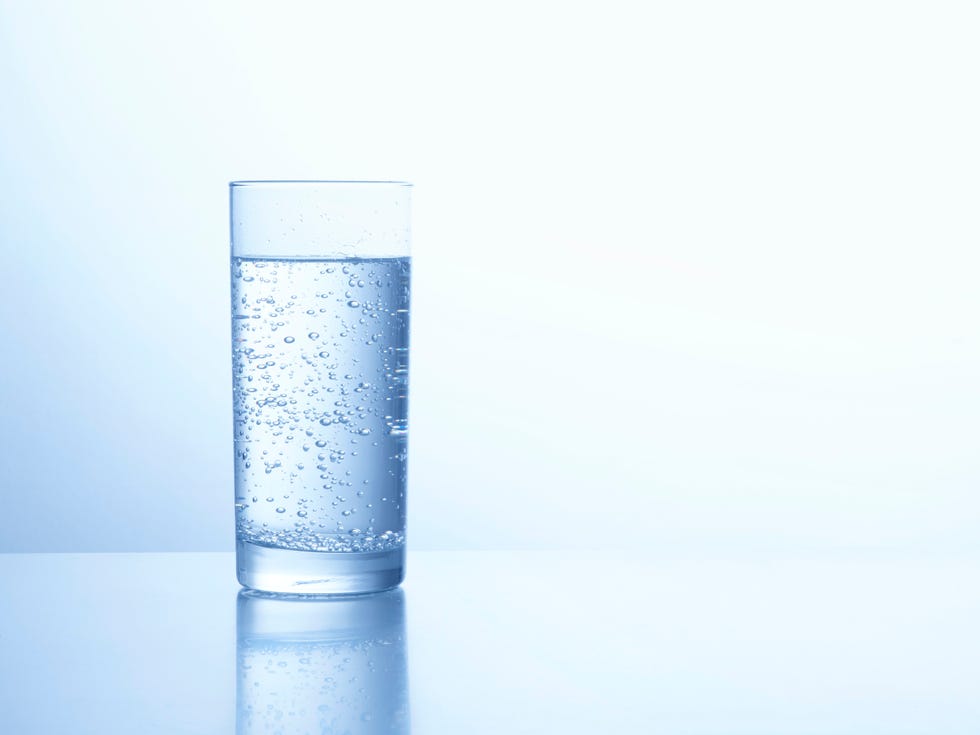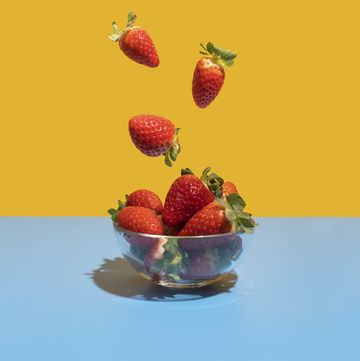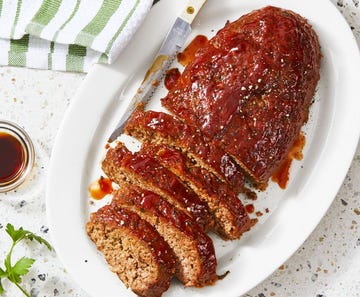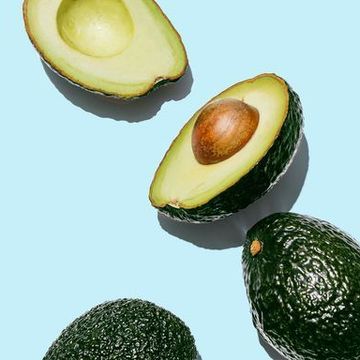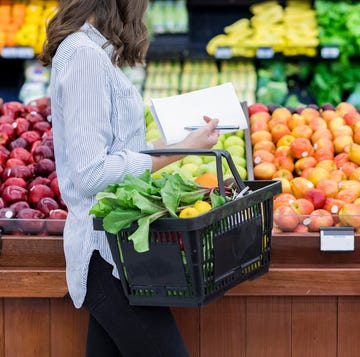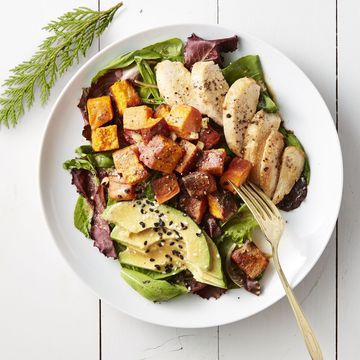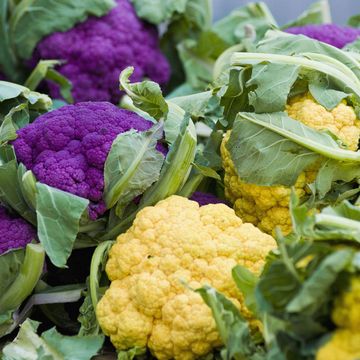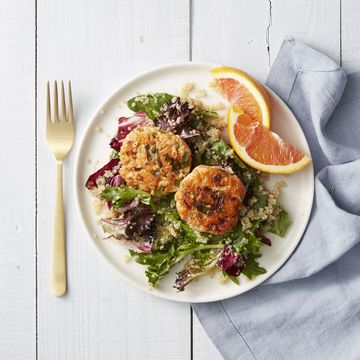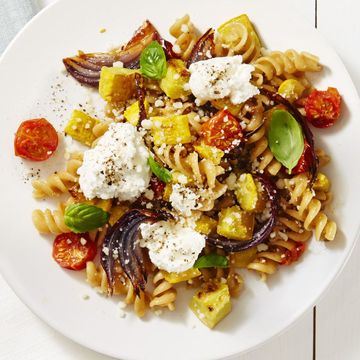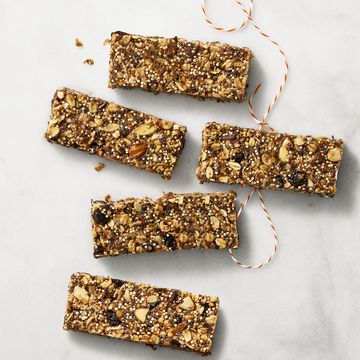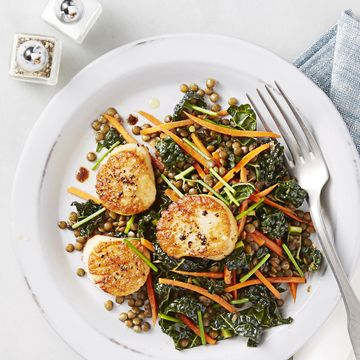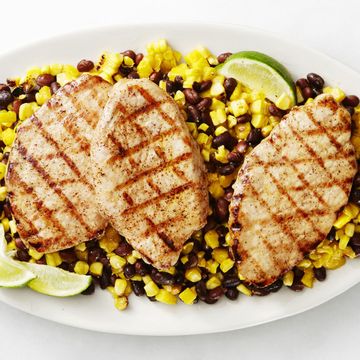From "better-for-you" smoothies to fancy organic energy drinks, the landscape of the "healthy" beverage aisle has grown tremendously over the years. Get past the lofty claims and vibrant packaging and you'll likely find that many of these "healthier" drinks aren't good for you at all. In fact, sugar-sweetened beverages are the biggest source of added sugars in the American diet. You may be shocked to find sneaky added sugars in the ingredient list of so-called "better-for-you" beverages, not to mention artificial sugars and colors too.
While a sugary drink isn't the end of the world once in a while, excessive consumption especially on a regular basis can really add up and negatively impact your health. Nutrition experts in the Good Housekeeping Institute Nutrition Lab share which drinks to think twice about picking up and tips for choosing the healthiest option at the grocery store:
1. Fruit juice
Fruit itself is ultra-nutritious, packed with antioxidants and filling fiber. Fruit does contain natural sugars, but because of what they're within, naturally occurring sugars come bundled with lots of good-for-you nutrients like vitamins, minerals and fiber. But fruit juice strips all that good-for-you fiber away and results in a boat load of sugar and calories (it takes three oranges to make just one cup of orange juice to put things into perspective). Plus, pasteurizing fruit juices can also decrease some of the nutrients in the juice itself. While not all juice is created equal (i.e. fresh squeezed is better than concentrate), an eight ounce glass can set you back about 120 to 150 calories. Research suggests that sucrose consumption without the corresponding fiber, as is commonly present in fruit juice, is associated with metabolic syndrome, liver injury and obesity. Excessive fruit juice intake has even been linked to childhood obesity.
Instead of fruit juice, opt for: Adding a few slices of fresh fruit to water for your own DIY infused water. A piece of whole fruit with breakfast is also a great option, since the pulp will help fill you up and provide fiber.
2. Sugary coffee drinks
A cup of coffee boasts some serious health benefits, but concoctions like Frappuccinos and other decadent coffee drinks likely outweight any of coffee's stellar benefits. That's because many of these beverages are packed with added sugar. Unless you're actively making a coffee beverage your dessert, avoid sugary syrups and whipped toppings. Plus, though they contain caffeine, you'll feel an extra crash and burn once the sugar high wears off.
Instead of sugary coffee drinks, opt for: A standard cappuccino, which is just espresso and milk, or one of our favorite healthy Starbucks drinks.
3. Soda
Any 16-ounce soda, not just cola but lemon-lime sodas and tonic water too, has about 13 teaspoons of sugar, which is more than double the recommended intake in a whole day. Sure, a ginger ale when your tummy aches or cola when it's calling your name isn't the end of the world — just try your best not to make a habit out of it. And don't think that the diet stuff is considered a free-be; artificial sweeteners can be anywhere from 200 to 600 times as sweet as regular sugar which can hyper-stimulate your taste buds. Consuming excessive amounts of artificial sweeteners can change palates or taste preferences over time, increasing desire for super sweet foods and decreasing enjoyment of naturally sweet foods like fresh fruit. A little bit is okay, but practice moderation with the artificial stuff as well.
Instead of soda, opt for: Naturally flavored sparkling water or half soda mixed with half seltzer.
4. Sweetened nut milks
We love a good plant-based milk, but unless you're purchasing the unsweetened version, most varieties are typically just packing in extra sugar to enhance flavor. This goes for all plant-based milks, from coconut to almond, hemp, hazelnut and oat. Plus, since plant-based milks are lower in protein than animal or soy-milk, you're not gaining much good stuff either.
Instead of sweetened nut milks, opt for: Unsweetened nut milks.
5. Premixed alcoholic beverages
Premixed cocktails are essentially a hangover in a bottle. The combination of added sugar, preservatives and alcohol can only expedite the dehydration that already happens when you drink booze.
Instead of premixed alcoholic beverages, opt for: Your spirit-of-choice on the rocks or with club soda. Or, try making your own mix at home.
6. Pre-made protein shakes
Sugar with a side of protein anyone? Take a look at the ingredient list of most protein shakes and you may be shocked to find they are loaded with sugar, artificial sweeteners, preservatives and additives. A good rule of thumb: Drink your water, eat your protein. Traditional sources like milk, yogurt, eggs, seafood, chicken and leaf beef are always a better bet.
Instead of pre-made protein shakes, opt for: Traditional sources as listed above or chose from the healthiest pre-made options on the market according to our experts.
7. Sports drinks
If you're not a high-performance athlete, you don't need an electrolyte replacement drink to help you stay fueled and at the top of your game. There are special instances, like working out in extreme temperatures or for prolonged periods of time (think 90+ minutes) that a sports drink may be warranted. But for the average half hour on the elliptical, water will do the trick. Sports drinks are designed to help athletes stay energized and appropriately hydrated from the right balance of readily available carbs (sugar) and replete minerals (sodium, potassium and chloride). They'll add significant calories, and if you have a sensitive tummy, they may also make you a little nauseous.
Instead of sports drinks, opt for: Plain water or unsweetened coconut water (just look out for flavored varieties that can pack in a ton of added sugar).
8. Pre-bottled smoothies
Even if they claim to have "no sugar added," most smoothies are just masquerading as a "health" drink. While they can get away with the claim by using sugar in the form of fruit puree, the total sugar load is still significant and is often not balanced with any fiber or protein to help stabilize blood sugar levels and keep you full.
Instead of pre-bottled smoothies, opt for: Homemade smoothies that pack in fruit, veggies and a protein source like Greek yogurt.
9. Sweetened iced tea
A standard can of peach iced tea contains 34 grams of added sugar, almost 9 teaspoons of the stuff which exceeds the daily limit recommended by the American Heart Association. If it's pre-sweetened, you can't control how much added sugar (or artificial sweeteners) are being added to your drink. You're better off ordering an unsweetened version and adding a teaspoon (or two) of sugar on your own for sweetness. That way, you can control how much you add and cut the total sugar content by more than half.
Instead of sweetened iced tea, opt for: Unsweetened and add a slice of citrus and one (or two) teaspoons of sugar on your own for sweetness.
10. "Sneaky" sparkling waters
Check labels for artificial sweeteners (aspartame, acesulfame-K, sucralose, saccharin are a few) on "water" labels. While they may not be harmful to your health, not all flavored waters are created equal and require some nutrition label detective work.
Instead of artificially flavored or sugary sparkling waters, opt for: sparkling waters with a dash of fruit juice for flavor.

A registered dietitian with a Bachelor of Arts degree from Northwestern University and a Master of Science degree in Clinical Nutrition from New York University, Jaclyn “Jackie” London handled all of Good Housekeeping’s nutrition-related content, testing, and evaluation from 2014 to 2019. Prior to joining GH, she was a clinical dietitian at Mount Sinai Hospital. Jackie has also appeared as an expert guest on The Dr. Oz Show and The Today Show. She is also author of the book Dressing on the Side (and Other Diet Myths Debunked).
Stefani (she/her) is a registered dietitian, a NASM-certified personal trainer and the director of the Good Housekeeping Institute Nutrition Lab, where she handles all nutrition-related content, testing and evaluation. She holds a bachelor’s degree in nutritional sciences from Pennsylvania State University and a master’s degree in clinical nutrition from NYU. She is also Good Housekeeping’s on-staff fitness and exercise expert. Stefani is dedicated to providing readers with evidence-based content to encourage informed food choices and healthy living. She is an avid CrossFitter and a passionate home cook who loves spending time with her big fit Greek family.
